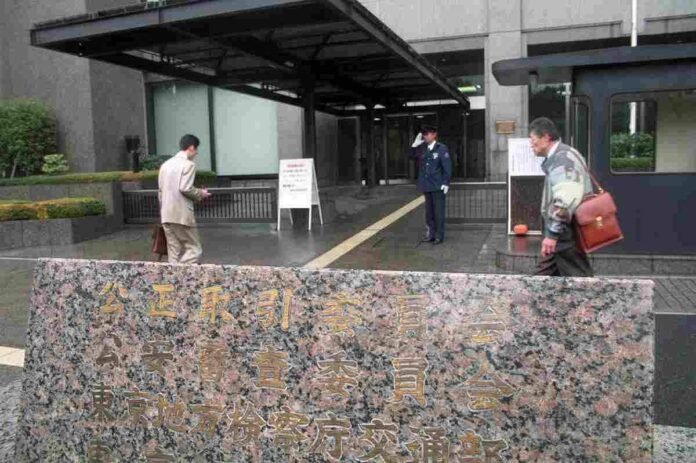The building that houses the Japan Fair Trade Commission
06:00 JST, July 4, 2024
Japan’s Fair Trade Commission plans to strengthen its system for monitoring compliance with “commitment procedures,” administrative measures taken against companies suspected of violating the Antimonopoly Law, the Yomiuri Shimbun has learned.
The JFTC is considering requiring companies subject to commitment procedures to have a third party monitor the companies’ improvement efforts.
Commitment proceedings are responsible for most administrative actions imposed by the JFTC. In principle, the proceedings focus on suspected violations of the law, other than bid rigging and cartels. If companies voluntarily submit a remediation plan for problematic actions to the JFTC and the JFTC finds the plan to be fully effective, the companies will not face sanctions such as surcharge payment orders or stop orders.
Because commitment procedures can lead to the rapid restoration of a competitive environment, they have been applied to 19 cases involving 21 entrepreneurs. This represents approximately 80% of the cases in which the JFTC has taken legal action since the procedures were introduced in December 2018.
Commitment procedures have been applied to many companies, including US tech giant Google LLC and major online retailer Amazon Japan. However, some antitrust experts have pointed out that after the procedures are imposed, the companies themselves have to report on the improvement situation and the actual status of the improvements cannot be confirmed.
When Google, which became subject to the commitment procedures in April this year, entered into a contract with Yahoo Japan Corp. (now LY Corp.) in 2010, it told the JFTC that it would “maintain a competitive relationship with Yahoo Japan.”
However, in 2014, Google entered into a new contract that restricted Yahoo Japan’s business dealings. For seven years from 2015, Google continued to do unfair business with Yahoo Japan. During that time, Google failed to report any of these facts in multiple interviews with the JFTC, delaying the discovery of the situation.
In view of concerns that there may be further malicious circumvention of reporting in relation to the commitment procedures in the future, it is believed that the JFTC has deemed it necessary to strengthen the monitoring system following approval of companies’ improvement plans.
According to sources involved in the matter, the JFTC will require the companies to have an “independent third party” monitor the implementation of all items included in the improvement plans in the commitment procedures that will be discussed with the companies in the future.
In addition to confirming that problematic actions have been stopped, the JFTC will require companies to specify in their improvement plans that the third party will monitor the current status of measures to prevent recurrence, such as employee training sessions and the creation of a code of conduct. The third party is expected to consist of experts, such as lawyers and an accounting firm, who are appointed and paid by the company.
In European countries there is a ‘trustee’ system in which experts monitor the implementation of the commitment procedures and report violations to the competition authorities.
The introduction of a system of ex post control by the JFTC will in effect be the Japanese version of the trustee system.
In addition, the current customary three-year period during which “the problem behavior must cease” and “measures must be taken to prevent recurrence” will in principle be extended to five years or longer. The period for annual status reports to the JFTC will also in principle be extended to five years or longer.
The JFTC will actively conduct mandatory hearings and document collection under the Antimonopoly Law for companies that fail to meet their reporting obligations and refuse to provide new information – raising questions about the implementation of their plans – even after their improvement plans have been approved.
If the companies fail to comply with the rules, those responsible face up to one year in prison or a fine of up to ¥3 million.



